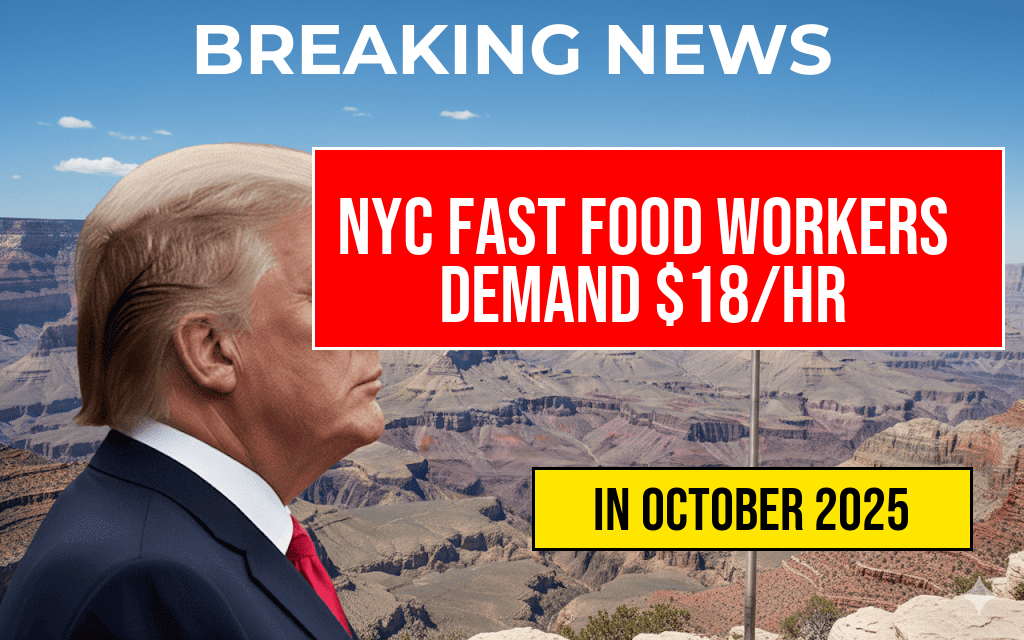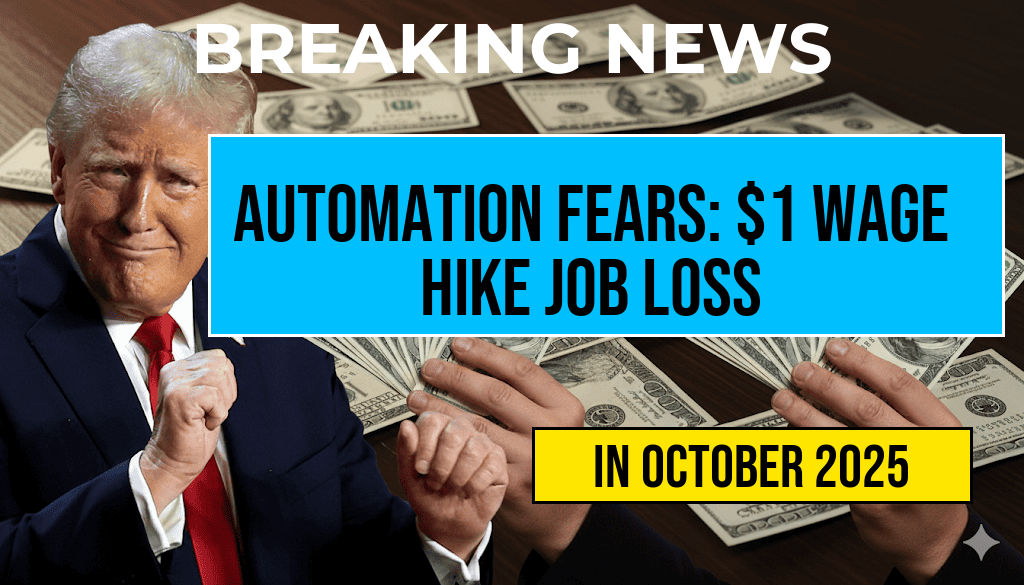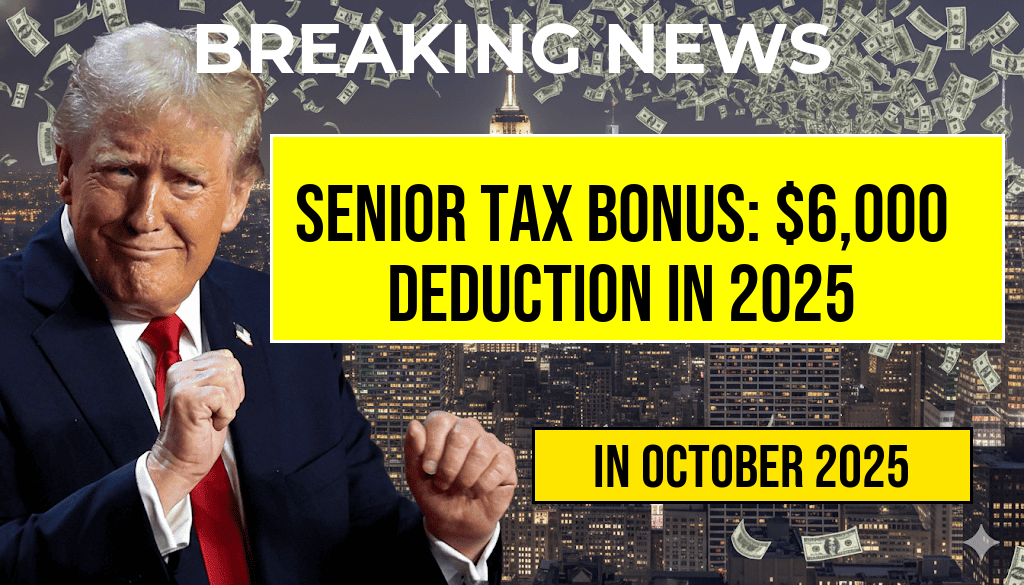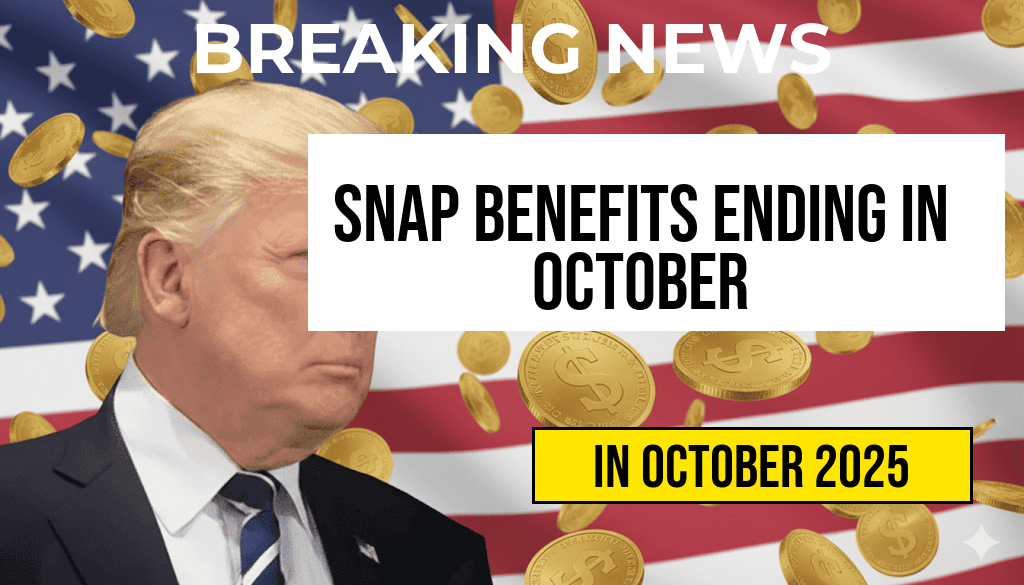Fast food workers across New York City are escalating their efforts to secure an $18 an hour minimum wage, citing rising living costs and demanding fair compensation for their labor. Organized protests, rallies, and petitions have surged in recent weeks, reflecting a growing movement that aims to influence policymakers and major restaurant chains alike. As the city grapples with economic disparities exacerbated by inflation and housing costs, workers argue that their current wages fall short of sustaining a decent standard of living. Industry representatives and business leaders, however, warn that such wage hikes could impact employment levels and increase prices for consumers. This debate underscores broader questions about wage equity and economic sustainability within the fast food sector in one of the nation’s most expensive cities.
Background and Context
Over the past decade, New York City has seen significant increases in the cost of living, with housing expenses and transportation costs rising sharply. Despite these economic pressures, many fast food workers earn the federal minimum wage, currently set at $7.25 an hour, or the city’s minimum wage, which is $15 an hour for large employers as of 2023. However, advocates argue that even $15 an hour is insufficient in a city where the median rent for a one-bedroom apartment exceeds $2,500 per month, according to NYC.gov.
Labor groups and advocacy organizations have long pushed for higher wages, emphasizing that fast food workers are vital to the city’s economy yet remain among its lowest-paid employees. The push for an $18 an hour minimum wage is part of a broader campaign that seeks to align fast food wages with those of other service sector jobs and to address systemic income inequality. This movement has gained momentum amid broader discussions about the living wage and economic justice in urban settings.
Protests and Mobilization
Recent Actions and Public Demonstrations
- In late September, workers from major chains like McDonald’s, Burger King, and Wendy’s organized rallies outside city hall, demanding a meeting with local officials to discuss wage reforms.
- Several protests have included sit-ins and walkouts, with participants holding signs that read, “Fair Pay Now” and “$18 for NYC Fast Food Workers.”
- Workers have also launched online petitions garnering thousands of signatures, aiming to pressure city lawmakers into adopting a higher minimum wage specifically tailored for fast food employees.
Worker Perspectives
Many participants describe their daily struggles balancing work and family expenses. Maria Lopez, a 28-year-old cashier at a Bronx fast food outlet, explained, “I work full-time but still can’t afford rent or basic groceries. We’re asking for a wage that respects our contribution and helps us survive here.”
Supporters argue that a wage increase would not only improve workers’ quality of life but also reduce turnover and improve service quality. “When workers are paid fairly, they’re more motivated and committed,” said labor organizer David Chen.
Industry and Policy Responses
Business Community Concerns
| Stakeholder | Position |
|---|---|
| Fast Food Chains | Express concern that an $18 minimum wage could lead to higher menu prices and potential layoffs, citing increased labor costs as a threat to profitability. |
| Labor Advocates | Argue that fair wages are essential for workforce stability and economic justice, emphasizing that fast food workers are often overlooked in wage discussions. |
| City Officials | Some support the movement, while others call for a balanced approach that considers both workers’ needs and business sustainability. |
Legislative and Policy Developments
City Council members have begun discussions on potential legislation that could set a higher minimum wage floor for fast food workers, similar to recent statewide initiatives. However, resistance from industry groups and some political factions complicates efforts to implement such reforms quickly. Experts note that wage increases could also lead to adjustments in employment practices, such as automation or reduced hours, which may impact job opportunities for entry-level workers.
The Broader Economic Debate
Advocates for a higher minimum wage emphasize that boosting pay for fast food workers aligns with broader economic fairness and reduces reliance on government assistance programs. According to data from the Wikipedia entry on minimum wage in the U.S., cities that have increased wages often see improvements in worker well-being and local economic activity.
Opponents caution that significant wage hikes could lead to increased prices for consumers and potentially threaten small business viability. The debate continues to be a focal point in city politics, with the upcoming budget sessions expected to address some of these issues directly.
Looking Ahead
As organized efforts gain traction, the push for an $18 an hour minimum wage in New York City’s fast food sector reflects a broader societal conversation about fair wages, economic security, and the future of urban labor markets. While legislative and industry responses remain uncertain, the movement underscores a growing demand for recognition of fast food workers’ contributions and the need for equitable compensation in one of America’s most expensive cities.
Frequently Asked Questions
What is the main goal of the New York fast food workers’ campaign?
The primary goal of the campaign is to advocate for a $18 an hour minimum wage for fast food workers across New York City, aiming to improve their working conditions and ensure fair compensation.
Why are fast food workers in NYC demanding a higher minimum wage?
Fast food workers are demanding a higher minimum wage to address low pay that does not meet the cost of living in NYC, as well as to recognize their hard work and contribution to the local economy.
How does the campaign plan to achieve their goal?
The campaign involves organizing advocacy efforts, public demonstrations, and engaging with policymakers to push for legislative changes that establish an $18 an hour minimum wage for all fast food employees.
What impact could this campaign have on the fast food industry in NYC?
If successful, the campaign could lead to wage increases across the industry, potentially influencing working conditions and prompting other cities to adopt similar wage standards.
Are there any challenges faced by the campaign for a higher minimum wage?
Yes, challenges include opposition from industry stakeholders, potential increased costs for businesses, and the need for policy support to implement the wage increase effectively.






